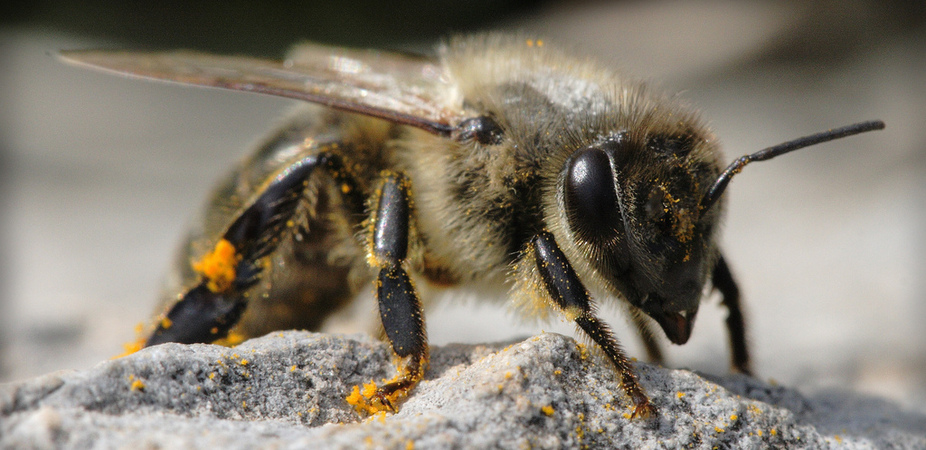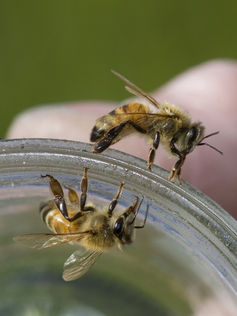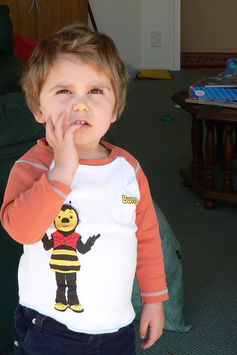What Bees Don't Know Can Help Them: Measuring Insect Indecision (Op-Ed)


This article was originally published at The Conversation. The publication contributed the article to LiveScience's Expert Voices: Op-Ed & Insights.
Everyone knows what it’s like to be uncertain – at least, humans do. But are non-human animals ever uncertain? When we feel uncertainty, instead of risking the consequences of a bad or wrong decision, we seek more information or choose to opt out of the decision.
Last week, my colleague Andrew Barron and I published results investigating uncertainty monitoring in honey bees and found that bees avoided difficult tasks that they lacked the information to solve.
This ability to monitor uncertainty was long considered a complex cognitive behaviour privy to humans. Studies with primates and rats however suggest that some of our closely related animal cousins can also avoid decisions based on their own uncertainty.
But whether a small and relatively simple brained animal such as an insect can do so has not even been considered … until now.
How to measure a bee’s intelligence
It’s difficult enough to study cognition in non-speaking animals. How did we go about testing whether an insect, with a brain the size of a sesame seed, could actually monitor uncertainty?
First, we built a test apparatus with two chambers that bees could fly into and drink from one of two targets.
Get the world’s most fascinating discoveries delivered straight to your inbox.
If the bees landed on the target located above a black bar, they would find sucrose, a rewarding sugary solution. But if they landed on the target below a black bar, they would find a distasteful bitter solution.
As you’d expect, bees became rather good at determining which target was situated above the black bar.
But we then made things a bit harder for the bees. We varied the difficulty of the tests by placing the targets closer to the black bar. This made it less obvious which target was above and which below.
Bees were also allowed to fly from the first chamber to the second without picking a target, and thereby opt out of the decision. If bees were capable of monitoring their uncertainty, they should opt out of the more difficult trials.
And in fact, they did. Bees opted out more often on trials where the targets were closer to the black bars.
On some trials, bees would be able to opt out, but on other trials they would not and be forced to make a decision. If bees were monitoring their uncertainty, they would be expected to do better on difficult tests when they had the ability to opt out.
Bees avoid difficult decisions
When forced to make a decision, bees had to guess if they weren’t sure of the answer. But when allowed to opt out, they could select only those trials that they knew the answer to – and this is exactly what we saw. Bees picked the correct target more often when they could opt out.
These results are similar to those found with primates. So it seems that bees have the ability to monitor their uncertainty, right?
Well, maybe. As with other animals, this behaviour could be explained by associative mechanisms.
Although opting out was not directly rewarding, bees could have associated opting out with avoidance of punishment (drinking a bitter solution) and that punishment was less likely on harder trials. This model might be enough to explain the results, just as well as uncertainty monitoring.
So how do we know which is correct? Shouldn’t we assume the simpler model?
A bee’s brain is complex
The problem is, we don’t know which is simpler when it comes to the brain. The associative explanation would have to assume that bees could tell the difference between difficult and easy trials and weight them differently. It may be just as simple for a bee (or any other animal) brain to compute uncertainty as it would be to classify and associate outcomes.
Until we examine uncertainty at the level of the brain itself, we’ll have to remain uncertain.
Whether an insect monitors uncertainty or only appears to, honey bees are able to selectively avoid making decisions when information is limited. This means even invertebrates are capable of making complex and adaptive decisions.
Our results show that the capacity to respond adaptively to difficult choices is not unique to large brained mammals, and may likely extend throughout the evolutionary tree.
Clint J Perry has received funding from the Endeavour Awards Fellowship in Sydney and is about to take up a Marie Curie Fellowship.
This article was originally published at The Conversation. Read the original article. The views expressed are those of the author and do not necessarily reflect the views of the publisher. This version of the article was originally published on LiveScience.




